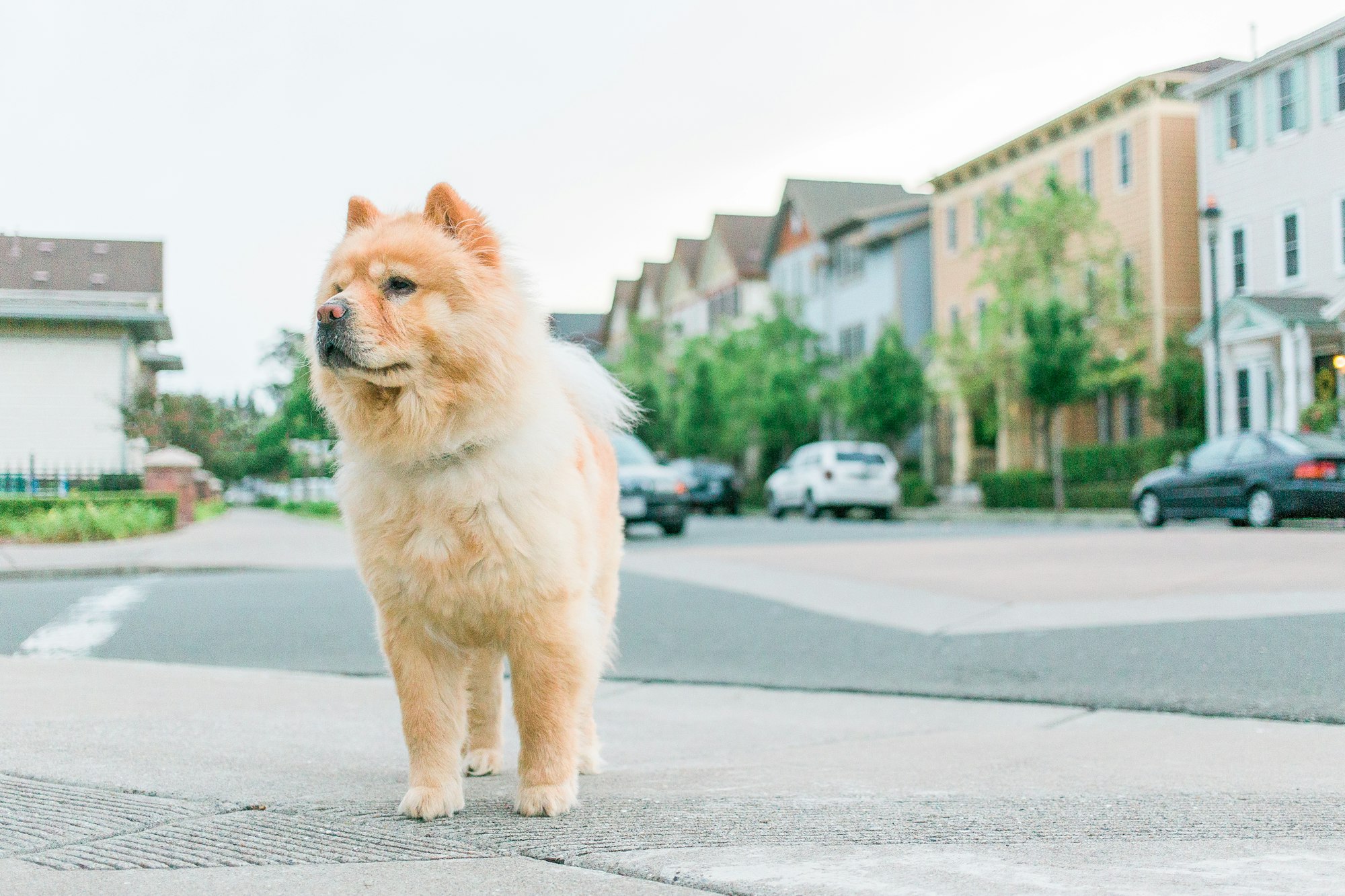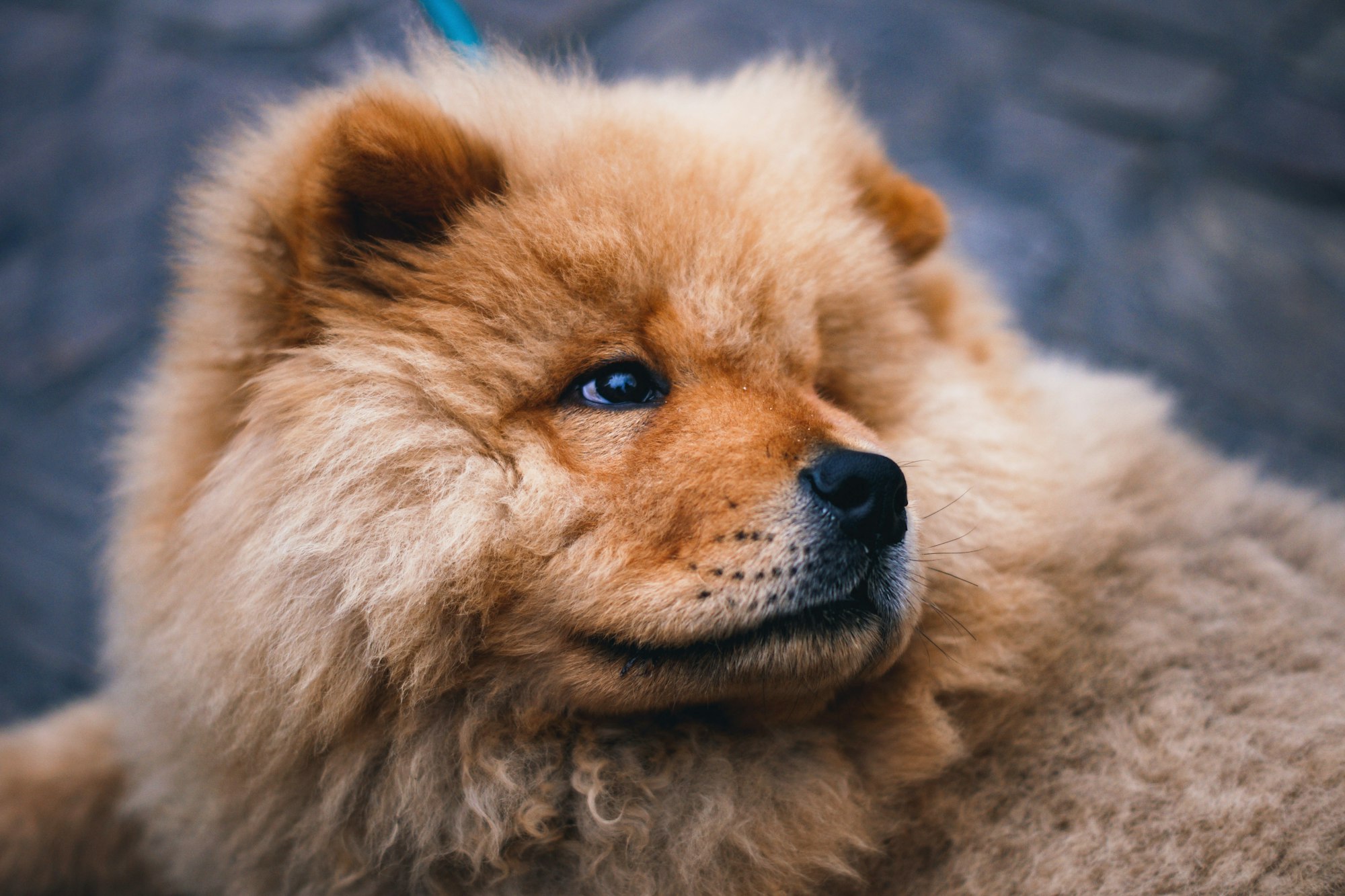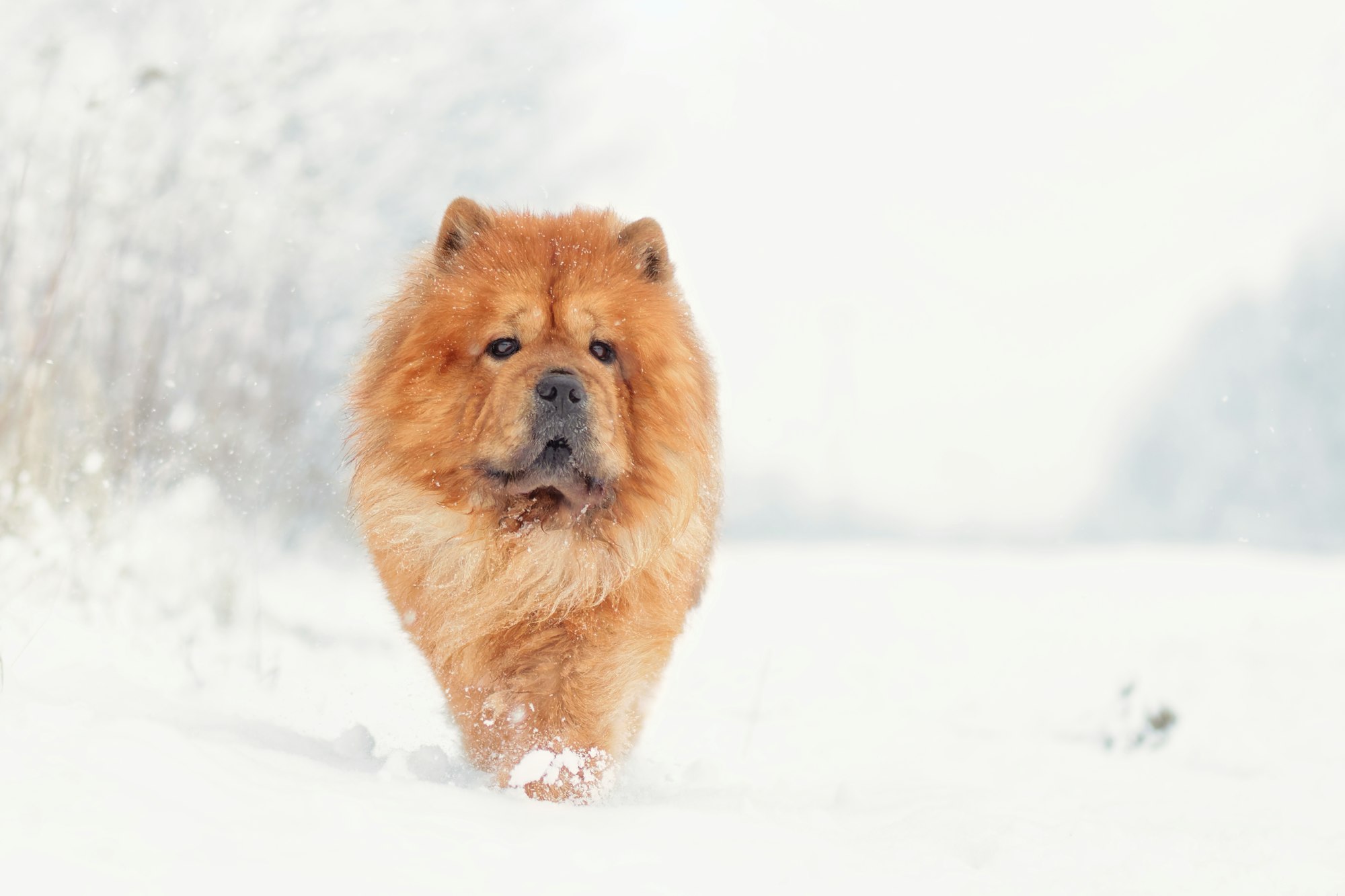If you're a dog lover seeking a unique and intriguing canine companion, look no further than the enigmatic Chow Chow. With its distinctive appearance and rich history, this breed has captured the hearts of many. In this article, we'll delve into the world of Chow Chows, exploring their origins, characteristics, care requirements, and much more.
So, let's embark on a journey of discovery and unravel the mysteries of the fascinating Chow Chow breed.

Introduction
The Chow Chow, often referred to as the "puffy lion dog," is a breed that exudes an air of mystery and regal charm. With its origins shrouded in antiquity, the Chow Chow's presence can be traced back thousands of years. This breed's unique characteristics and intriguing history make it a captivating subject for canine enthusiasts.
The Origins of the Chow Chow
The exact origins of the Chow Chow remain a subject of debate among historians and dog experts. Some theories suggest that the breed originated in ancient China, where it served as a versatile working dog, aiding in tasks such as hunting, guarding, and pulling carts.
Distinctive Characteristics
Chow Chows are a breed renowned for their unique and captivating characteristics that set them apart from other dogs. From their majestic appearance to their intriguing genetic quirks, these features contribute to the enigmatic allure of Chow Chows.

The Lion-Like Mane
One of the most remarkable and distinguishing features of Chow Chows is their lion-like mane. This thick and luxurious ruff of fur around their neck gives them a regal and majestic presence. The mane not only adds to their visual appeal but also serves a practical purpose, protecting varying weather conditions.
The Blue-Black Tongue
Perhaps one of the most perplexing and intriguing traits of Chow Chows is their distinctive blue-black tongue. This genetic anomaly is a hallmark of the breed and sets them apart from all other dog breeds. While the exact reason for this unique characteristic remains a mystery, it adds an air of mystique and fascination to these already captivating canines.
Chow Chow Weight and Size: Unveiling the Dimensions
Weight Range
Chow Chows boast a considerable weight that complements their robust build. Adult male Chow Chows typically weigh between 55 to 70 pounds (25 to 32 kg), while females generally weigh slightly less, ranging from 45 to 60 pounds (20 to 27 kg). This weight range emphasizes their substantial stature while maintaining their agility and grace. Read our comprehensive guide of Chow Chow Puppies.
Height at the Shoulders
On average, male Chow Chows typically stand between 18 to 22 inches (45 to 56 cm) at the shoulders, while females generally measure slightly smaller, ranging from 17 to 20 inches (43 to 51 cm). This moderate height contributes to their confident and commanding presence without being overly imposing.
Temperament and Behavior of Chow Chows
Beyond their striking physical attributes, Chow Chows possess a temperament and behavior that further contribute to their enigmatic nature. Understanding their personality traits is essential for anyone considering welcoming a Chow Chow into their home.
Independent Nature
Chow Chows are renowned for their independent and self-assured nature. Unlike some other breeds that constantly seek attention and affection, Chow Chows are content with their own company. This independence is rooted in their history as working dogs, where they were required to make decisions and carry out tasks with minimal guidance.

Loyalty and Bonding
Beneath the surface of their independence lies a deep well of loyalty and devotion. Once a Chow Chow forms a bond with its owner, that bond is unbreakable. These dogs are known for their unwavering loyalty and the strong connections they form with their human companions. This loyalty extends not only to individuals but also to their families as a whole, making them excellent and protective family pets.
Chow Chow Colors: A Palette of Possibilities
The Chow Chow's coat comes in a wide array of colors, from classic red and black to more unique shades such as blue, cinnamon, and cream. This variety of dog coat colors adds to the breed's visual appeal and ensures that each Chow Chow is a one-of-a-kind masterpiece.
Grooming and Coat Care
Maintaining the exquisite appearance of a Chow Chow requires dedicated grooming and meticulous coat care. From their luxurious double coat to their unique grooming needs, tending to their fur contributes to their regal allure and overall well-being.
The Double Coat Beauty
Chow Chows boasts a double coat that consists of a dense, soft undercoat and a coarser outer coat. This combination provides insulation and protection from various weather conditions. While their coat enhances their majestic appearance, it necessitates regular attention to prevent matting and promote a healthy sheen.
Brushing Routine
Frequent brushing is a cornerstone of Chow Chow coat care. Aim for a brushing session at least two to three times a week. Using a sturdy brush or comb, gently work through their fur to remove tangles and prevent mats from forming. This process not only maintains their coat's luster but also promotes healthy circulation to the skin.
Bathing and Beyond
While Chow Chows don't require frequent baths, occasional bathing is essential to keep their coat clean and odor-free. Use a mild, dog-friendly shampoo and ensure thorough rinsing to prevent skin irritation. Additionally, pay attention to their ears, nails, and teeth. Regular ear cleaning, nail trimming, and dental care contribute to their overall grooming routine.

Feeding Your Chow Chow: A Culinary Commitment
Providing the right nourishment is paramount to the well-being and vitality of your Chow Chow. A balanced and appropriate diet supports their health, energy levels, and overall quality of life.
Nutritional Requirements
Chow Chows thrive on a diet rich in high-quality protein, healthy fats, and essential nutrients. Look for commercial dog food that lists meat as the main ingredient and avoids fillers or artificial additives. Consult with your veterinarian to determine the ideal portion sizes based on your Chow Chow's age, activity level, and overall health.
Meal Frequency
Divide your Chow Chow's daily food intake into two or three smaller meals. This approach helps prevent overeating, aids in digestion and ensures a steady release of energy throughout the day. Avoid feeding them immediately before or after vigorous exercise to reduce the risk of bloat, a condition that can affect deep-chested breeds like Chow Chows.
Hydration and Snacks
Always provide fresh, clean water to keep your Chow Chow hydrated. Limit treats and snacks, as excessive indulgence can lead to weight gain and nutritional imbalances. Opt for healthy, dog-safe treats that complement their diet and offer occasional rewards during training.
Health Considerations
Ensuring the well-being of your Chow Chow involves understanding and addressing their unique health considerations. From common breed-specific issues to proactive care, safeguarding their health is an essential aspect of responsible ownership.
Common Health Issues
Chow Chows, like all breeds, are susceptible to certain health conditions that require vigilance and proactive management. Some of the common health concerns for Chow Chows include:
Hip and Elbow Dysplasia
Chow Chows can be prone to hip and elbow dysplasia, which are conditions that affect the joints and can lead to discomfort and reduced mobility. Regular veterinary check-ups and preventive measures, such as maintaining a healthy weight and providing joint supplements, can help manage these issues.

Eye Conditions
Chow Chows are at an increased risk of developing various eye conditions, including entropion (inward rolling of the eyelids) and cataracts. Routine eye examinations by a veterinarian can help detect and address these issues early, ensuring optimal eye health.
Dental Health
The breed's unique brachycephalic (short-nosed) facial structure can contribute to dental problems. Regular dental care, including brushing their teeth and providing dental treats, can help prevent periodontal disease and maintain their overall oral health.
Nutrition and Exercise
Proper nutrition and regular exercise are vital components of maintaining your Chow Chow's overall health and well-being. A balanced diet that meets their specific nutritional needs, along with portion control to prevent obesity, supports their longevity and vitality. Regular exercise helps maintain a healthy weight, strengthens muscles, and promotes mental stimulation.
Routine Veterinary Care
Regular visits to the veterinarian are crucial for monitoring your Chow Chow's health and addressing any potential issues. Vaccinations, parasite prevention, dental check-ups, and overall wellness assessments are essential to ensure they lead a happy and healthy life.
Early Detection and Care
Chow Chows have a stoic nature and may not always show obvious signs of discomfort. Therefore, being attuned to subtle changes in behavior, appetite, or energy levels is essential for early detection of health issues. Prompt veterinary attention and proactive care can make a significant difference in managing and treating potential health concerns.
Training and Socialization
Early Training for Success
Early training and socialization play a pivotal role in shaping the Chow Chow's behavior. Starting training from a young age and exposing them to various environments and experiences will help ensure that they grow into well-adjusted and well-mannered companions.

Navigating Socialization Challenges
Chow Chows can be reserved around strangers, making early and consistent socialization crucial. Gradually exposing them to different people, animals, and situations helps curb potential behavioral issues and fosters a confident and well-socialized dog.
Chow Chows in Popular Culture
Chow Chows have left an indelible mark on popular culture, captivating hearts and gracing various forms of media with their unique presence. From the silver screen to literature, these enigmatic canines have become symbols of elegance and intrigue.
Silver Screen Stars
Chow Chows have made their presence felt in the world of cinema, often portraying characters of distinction and refinement. Their dignified demeanor and distinctive appearance have led them to be cast in roles that demand an air of regality. Whether as loyal companions to protagonists or as characters in their own right, Chow Chows have seamlessly integrated into the tapestry of cinematic storytelling.
Literary Legends
In the realm of literature, Chow Chows have inspired authors to weave tales that celebrate their mystique. These dogs have graced the pages of novels and stories, becoming symbols of loyalty, wisdom, and sometimes even a touch of enigmatic charm. Their inclusion in literature adds depth and dimension to characters and narratives, leaving an indelible mark on readers' imaginations.
The Bond Between Chow Chows and Humans: A Tale of Devotion
The relationship between Chow Chows and humans goes beyond the physical presence of a pet. It is a profound bond rooted in loyalty, trust, and unwavering companionship. This unique connection has made Chow Chow cherished members of countless families around the world.
Loyalty Beyond Measure
Chow Chows are renowned for their unwavering loyalty to their human companions. Once a bond is formed, it becomes a testament to their enduring devotion. Whether through playful interactions, quiet moments of solace, or shared adventures, Chow Chows have an innate ability to forge deep emotional connections that stand the test of time.
Companionship Redefined
The companionship offered by Chow Chows transcends the ordinary. Their presence provides a source of comfort, joy, and a sense of purpose. They have an uncanny ability to sense their owner's moods and offer solace during challenging times. Their steady presence and unwavering support make them more than just pets; they become cherished confidants and true friends.
Is the Chow Chow Right for You?: Considerations and Reflections
While the allure of the Chow Chow is undeniable, it's essential to consider whether this distinctive breed aligns with your lifestyle, preferences, and abilities. Adopting a Chow Chow is a decision that requires careful consideration and a commitment to meeting their unique needs.

Independent Spirit
Chow Chows are known for their independent nature, which can sometimes be mistaken for aloofness. If you appreciate a dog that values their own space and is not overly dependent on constant attention, the Chow Chow's independent spirit may align well with your personality.
Experienced Ownership
Chow Chows can thrive in the right environment, but they are best suited for experienced happy dog owners who understand their unique characteristics and needs. Patient training, early socialization, and consistent care are essential for fostering a well-adjusted and content Chow Chow.
Final Thought
In conclusion, the Chow Chow is a breed that encapsulates both mystery and magnificence. From their ancient origins to their distinctive appearance and loyal temperament, Chow Chows have carved a special place in the hearts of dog enthusiasts worldwide.
FAQs About Chow Chows
Q1: What is the origin of the Chow Chow breed?
- The exact origin of the Chow Chow remains a subject of debate, but it is believed to have ancient roots in China, where it served various roles.
Q2: Are Chow Chows good with children?
- Chow Chows can be aloof and reserved, making them better suited for homes with older children who can respect their space.
Q3: How often should I groom my Chow Chow?
- Regular grooming, including brushing and bathing, should be done at least once a week to keep their luxurious coat in top condition.
Q4: Do Chow Chows have any unique health concerns?
- Yes, Chow Chows are prone to hip dysplasia, elbow dysplasia, and eye conditions. Regular vet check-ups are vital for their well-being.
Q5: Are Chow Chows easy to train?
- Chow Chows have an independent nature, making training a bit challenging. Consistent, patient, and positive reinforcement training methods are key to success.






